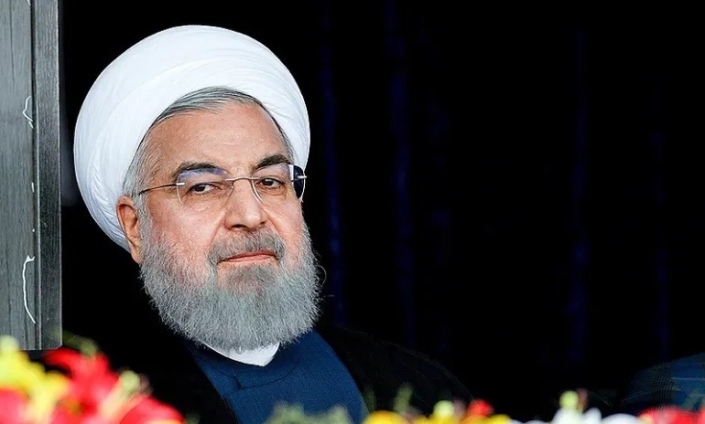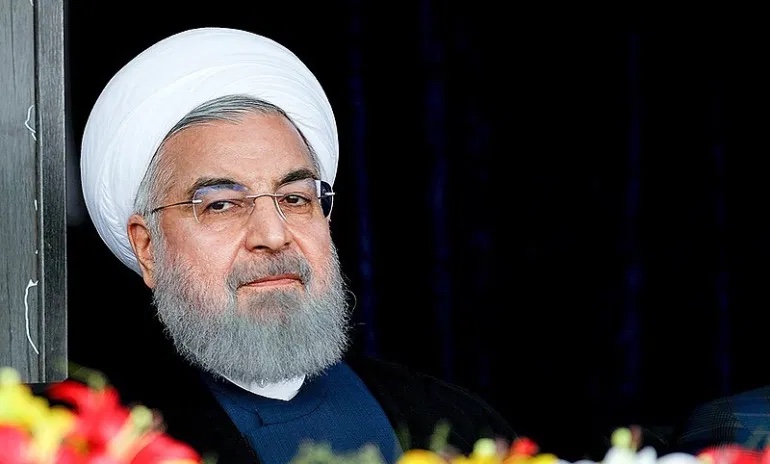
‘No Doubt’: Iran’s Rouhani Says US Will Rejoin 2015 Nuclear Deal, Lift Sanctions Under Biden
Sputnik News2 days ago
Under the Trump administration, the US withdrew from the 2015 Joint Comprehensive Plan of Action (JCPOA), arguing that Iran had violated its terms and that the deal was not beneficial. The move reimposed sanctions lifted under the deal and was one of many decisions by the administration that heightened tensions with the Middle Eastern country.
Iranian President Hassan Rouhani remarked Thursday that he has “no doubt” that the incoming administration of US President-elect Joe Biden would prompt Washington to rejoin the 2015 nuclear deal.

In remarks made during the inauguration ceremony of nearly 100 infrastructure projects, Rouhani told viewers that the “three-year resistance of the Iranian nation will force the future US administration to succumb to the people and return to their commitments and break the sanctions.”
“Our first task is to try to make sanctions ineffective or less effective,” he said during a video conference, adding that efforts “should not be delayed even for an hour.”
Iranian officials have stated the nation would be willing to return to the JCPOA on the condition that serious concessions are made, and that the US would compensate Iran in some manner for the economic setbacks caused by the sanctions.
As for Biden, the president-elect previously indicated that he would restart talks with Iran, noting that his first step in easing tensions with the country would be to rejoin the agreement; however, it’s unclear how soon into his administration the issue may be taken up.
Rouhani’s comments come just one day after Supreme Leader Ayatollah Ali Khamenei appeared to make similar remarks in support of the US rejoining the Obama-era agreement, which both Rouhani and Biden played a role in establishing.
Khamenei had said during a televised address that Iran needs to work to nullify the sanctions, but that “if the sanctions can be lifted in a correct, wise, Iranian-Islamic and dignified manner, this should be done.”
The respective remarks indicated a rare union between the two Iranian officials, who have previously butted heads over how to best handle certain matters.
In May 2019, Khamenei criticized both Rouhani and Iranian Foreign Minister Javad Zarif over the agreements settled on for the 2015 deal, telling university students during an event that he had “warned” the pair “several times” about his concerns. The comments echoed those he made in August 2018, when Khamenei said that Iranian negotiators had “trespassed the red lines.”
Supported by several Republican allies, US President Donald Trump announced in May 2018 that he would be withdrawing the US from the nuclear deal that was agreed on by Iran and six other global powers – China, the EU, Germany, France, Russia and the UK. The move effectively began the process of reimplementing a series of sanctions on Iran’s oil sales, financial transactions and construction imports as part of Trump’s so-called “maximum pressure” strategy.
Tensions between Iran and the US have remained heated throughout much of Trump’s term, with matters hitting an all-time high after the January 3 assassination of senior Iranian military leader Maj. Gen. Qasem Soleimani.
Rouhani, more recently, stated that while he was “not excited” by Biden’s victory, he was indeed “happy” that the “terrorist Trump” would soon be leaving the Oval Office.
No comments:
Post a Comment